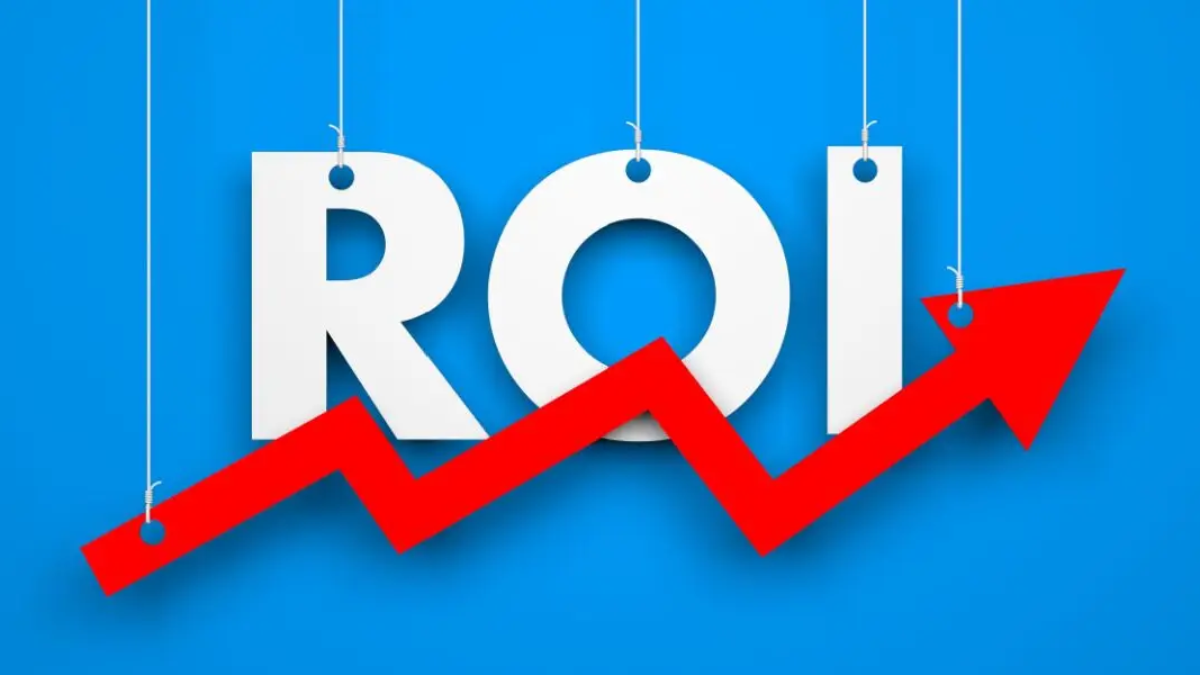In today’s competitive digital marketing roi landscape, businesses that understand how to track marketing results gain a significant advantage over their competitors. Smart marketers recognize that measuring return on investment in marketing is crucial for sustainable business growth and long-term success. Companies that consistently track marketing results can identify which strategies deliver the best outcomes and allocate their resources more effectively. The ability to track marketing results transforms marketing from guesswork into a data-driven science that produces predictable results.
Table of Contents
Understanding Digital Marketing ROI

Understanding the Importance of Marketing ROI
What is Return on Investment in Marketing?
Return on investment in marketing represents the financial gain or loss generated from marketing activities relative to the amount invested. Businesses that focus on return on investment in marketing can make informed decisions about where to allocate their marketing budgets for maximum impact. Understanding return on investment in marketing helps companies justify their marketing expenses and demonstrate the value of their marketing efforts to stakeholders.
Why ROI in Digital Advertising Matters
ROI in digital advertising provides concrete evidence of campaign effectiveness and helps businesses understand which channels deliver the best results. Companies that monitor ROI in digital advertising can quickly identify underperforming campaigns and reallocate budgets to more successful initiatives. Tracking ROI in digital advertising enables marketers to optimize their spending and achieve better results with the same or smaller budgets.
Essential Metrics for Measuring Marketing Success
Conversion Tracking Fundamentals
Conversion tracking enables businesses to see exactly which marketing touchpoints lead to desired customer actions, such as purchases, sign-ups, or inquiries. Effective conversion tracking requires setting up proper measurement systems that follow customers throughout their entire journey. Advanced conversion tracking helps marketers understand the complex path customers take before making purchasing decisions.
Understanding Cost Per Acquisition (CPA)
Cost per acquisition (CPA) measures how much it costs to acquire a new customer through specific marketing channels or campaigns. Businesses that monitor cost per acquisition (CPA) can identify the most cost-effective ways to attract new customers and grow their customer base.
Calculating Customer Lifetime Value (CLV)
Customer lifetime value (CLV) represents the total revenue a business can expect from a single customer throughout their relationship. Understanding customer lifetime value (CLV) helps marketers determine how much they can afford to spend on customer acquisition while maintaining profitability.
Tools and Technologies for Performance Measurement
Marketing Analytics Tools Selection
Choosing the right marketing analytics tools is essential for businesses that want to accurately measure and improve their marketing performance. The best marketing analytics tools provide comprehensive insights into customer behavior, campaign performance, and revenue attribution.
Leveraging Google Analytics for Marketing
Google Analytics for marketing offers powerful features that help businesses understand their website traffic, user behavior, and conversion patterns. Many successful companies rely on Google Analytics for marketing to make data-driven decisions about their digital marketing strategies.
ROI Reporting Dashboard Benefits
A well-designed ROI reporting dashboard provides real-time visibility into marketing performance and enables quick decision-making. An effective ROI reporting dashboard consolidates data from multiple sources and presents it in an easy-to-understand format.

Key Performance Indicators and Metrics
Performance Marketing Metrics That Matter
Performance marketing metrics help businesses evaluate the effectiveness of their marketing campaigns and identify areas for improvement. The most important performance marketing metrics vary by business type and marketing objectives but typically include conversion rates, customer acquisition costs, and return on ad spend.
Essential Marketing KPIs for Success
Marketing KPIs serve as benchmarks that help businesses track progress toward their marketing goals and objectives. Selecting the right marketing KPIs ensures that marketing teams focus on activities that drive meaningful business results.
Strategies to Improve Marketing Performance
How to Increase Marketing ROI
Businesses can increase marketing ROI by focusing on high-performing channels, improving conversion rates, and reducing acquisition costs. The most effective ways to increase marketing ROI involve continuous testing, optimization, and refinement of marketing strategies. Companies that successfully increase marketing ROI often see dramatic improvements in their overall business performance.
Optimize Marketing Spend Techniques
Learning how to optimize marketing spend requires analyzing performance data and reallocating budgets to the most effective channels and campaigns. Smart marketers optimize marketing spend by eliminating wasteful spending and doubling down on activities that generate the best results. The ability to optimize marketing spend becomes increasingly important as competition intensifies and customer acquisition costs rise.
Measuring Campaign Effectiveness
Measure Digital Campaign Performance Best Practices
Businesses need systematic approaches to measure digital campaign performance across all channels and touchpoints. Effective methods to measure digital campaign performance include setting clear objectives, tracking relevant metrics, and analyzing results regularly.
Evaluating Campaign Effectiveness
Assessing campaign effectiveness requires looking beyond surface-level metrics to understand the true impact of marketing efforts on business outcomes. Measuring campaign effectiveness helps marketers identify which strategies work best and should be scaled up.
Marketing Strategy Performance Analysis
Analyzing marketing strategy performance involves examining how well overall marketing approaches contribute to business goals and objectives. Regular marketing strategy performance reviews help businesses adapt to changing market conditions and customer preferences.
Building a Data-Driven Marketing Culture
Creating Accountability Through Measurement
Successful businesses create cultures where every marketing decision is backed by data and measurable outcomes. This approach ensures that marketing investments are strategic and contribute to overall business growth.
Continuous Improvement Through Analytics
Companies that embrace continuous improvement through data analysis often outperform competitors who rely on intuition alone. Regular analysis of marketing performance data reveals opportunities for optimization and growth.
Advanced ROI Tracking Techniques
Multi-Touch Attribution Models
Understanding how different marketing touchpoints contribute to conversions helps businesses allocate credit accurately across their marketing channels. This comprehensive view enables more informed budget allocation decisions.
Cross-Channel Performance Analysis
Analyzing performance across multiple marketing channels provides insights into how different channels work together to drive results. This holistic approach helps marketers optimize their overall marketing mix.
Common Pitfalls to Avoid
Vanity Metrics vs. Meaningful Metrics
Focusing on metrics that look impressive but don’t correlate with business outcomes can lead to poor decision-making. Successful marketers prioritize metrics that directly impact revenue and profitability.
Short-Term vs. Long-Term Thinking
Balancing immediate results with long-term brand building requires careful consideration of different types of marketing activities and their respective ROI timelines.
Getting Professional Help
For businesses looking to implement comprehensive ROI tracking and optimization strategies, working with experienced digital marketing professionals can accelerate results. Companies can explore advanced marketing analytics and optimization services at www.kordry.com to develop customized measurement strategies.
Conclusion
Tracking digital marketing ROI is not just about numbers—it’s about building a sustainable, profitable business that can adapt and grow in an ever-changing digital landscape. Businesses that master the art and science of ROI measurement position themselves for long-term success.
The key to effective ROI tracking lies in selecting the right metrics, implementing proper measurement systems, and using insights to make informed decisions. Companies that embrace data-driven marketing approaches often discover new opportunities for growth and optimization that would otherwise remain hidden.
Success in digital marketing ROI tracking requires commitment, the right tools, and ongoing refinement of measurement approaches. Businesses that invest in proper ROI tracking systems and analysis create competitive advantages that compound over time, leading to sustainable growth and profitability in their digital marketing efforts.


[…] Boost Your Growth by Tracking Digital Marketing ROI […]